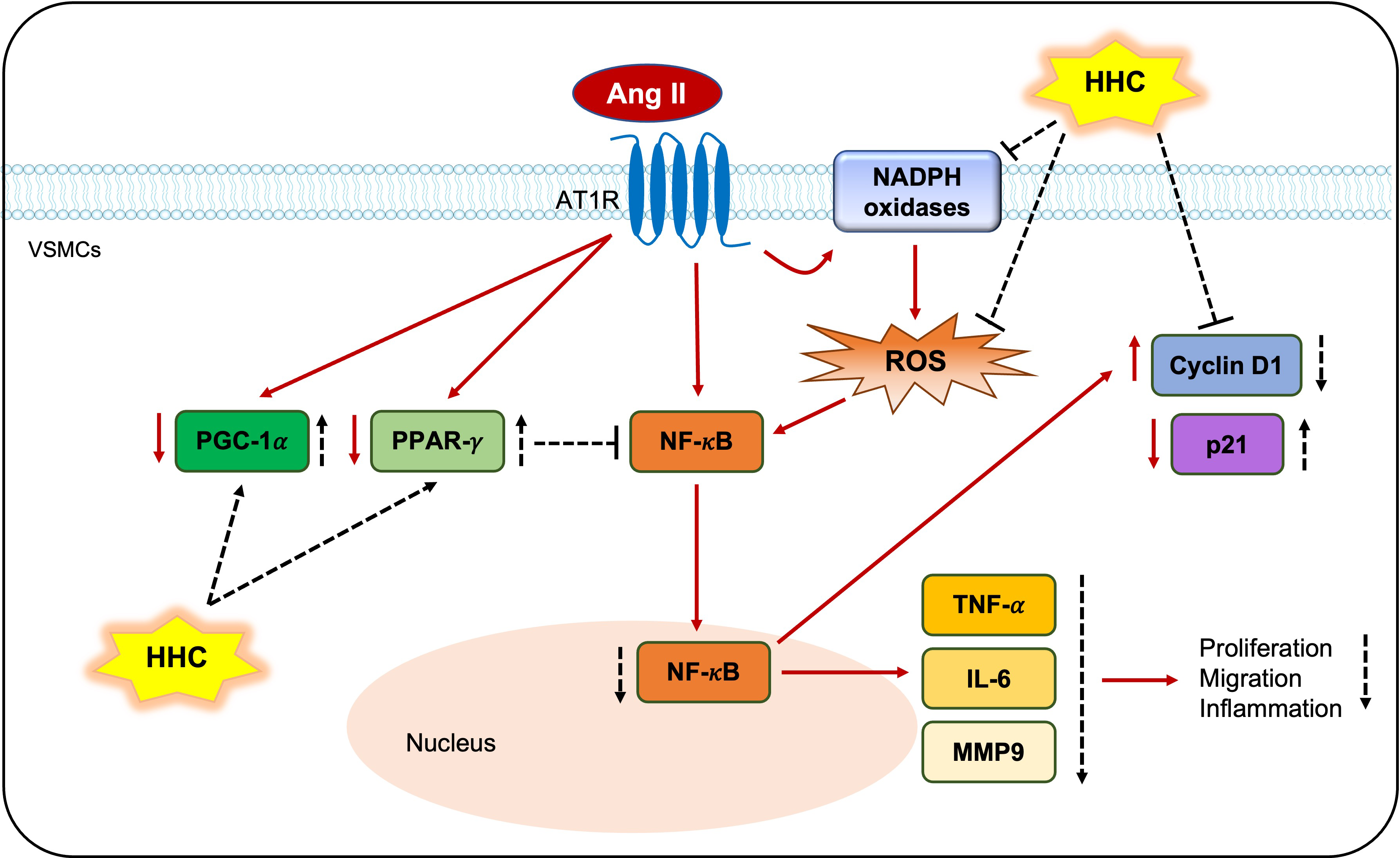Hexahydrocurcumin mitigates angiotensin II-induced proliferation, migration, and inflammation in vascular smooth muscle cells
DOI:
https://doi.org/10.17179/excli2023-6124Keywords:
hexahydrocurcumin, angiotensin II, vascular smooth muscle cell, proliferation, migration, inflammationAbstract
The proliferation and migration of vascular smooth muscle cells (VSMCs) play vital roles in the pathogenesis of atherosclerosis and hypertension. It has been proposed and verified that hexahydrocurcumin (HHC), a metabolite form of curcumin, has cardiovascular protective effects. This study examined the effect of HHC on angiotensin II (Ang II)-induced proliferation, migration, and inflammation in rat aortic VSMCs and explored the molecular mechanisms related to the processes. The results showed that HHC significantly suppressed Ang II-induced proliferation, migration, and inflammation in VSMCs. HHC inhibited Ang II-induction of the increase in cyclin D1 and decrease in p21 expression in VSMCs. Moreover, HHC attenuated the generation of reactive oxygen species (ROS), and the expression of nuclear factor kappa B (NF-kB), tumor necrosis factor-a (TNF-a), interleukin-6 (IL-6) and matrix metalloproteinases-9 (MMP9) in Ang II-induced VSMCs. The proliferation, migration, inflammation, and ROS production were also inhibited by GKT137831 (NADPH oxidase, NOX1/4 inhibitor) and the combination of HHC and GKT137831. In addition, HHC restored the Ang-II inhibited expression of peroxisome proliferator-activated receptor-g (PPAR-g) and peroxisome proliferator activated receptor-γ coactivator-1α (PGC-1α). These findings indicate that HHC may play a protective role in Ang II-promoted proliferation, migration, and inflammation by suppressing NADPH oxidase mediated ROS generation and elevating PPAR-γ and PGC-1α expression.

Downloads
Additional Files
Published
How to Cite
License
Copyright (c) 2023 Luckika Panthiya, Jiraporn Tocharus, Waraluck Chaichompoo, Apichart Suksamrarn, Chainarong Tocharus

This work is licensed under a Creative Commons Attribution 4.0 International License.
Authors who publish in this journal agree to the following terms:
- The authors keep the copyright and grant the journal the right of first publication under the terms of the Creative Commons Attribution license, CC BY 4.0. This licencse permits unrestricted use, distribution and reproduction in any medium, provided that the original work is properly cited.
- The use of general descriptive names, trade names, trademarks, and so forth in this publication, even if not specifically identified, does not imply that these names are not protected by the relevant laws and regulations.
- Because the advice and information in this journal are believed to be true and accurate at the time of publication, neither the authors, the editors, nor the publisher accept any legal responsibility for any errors or omissions presented in the publication. The publisher makes no guarantee, express or implied, with respect to the material contained herein.
- The authors can enter into additional contracts for the non-exclusive distribution of the journal's published version by citing the initial publication in this journal (e.g. publishing in an institutional repository or in a book).





